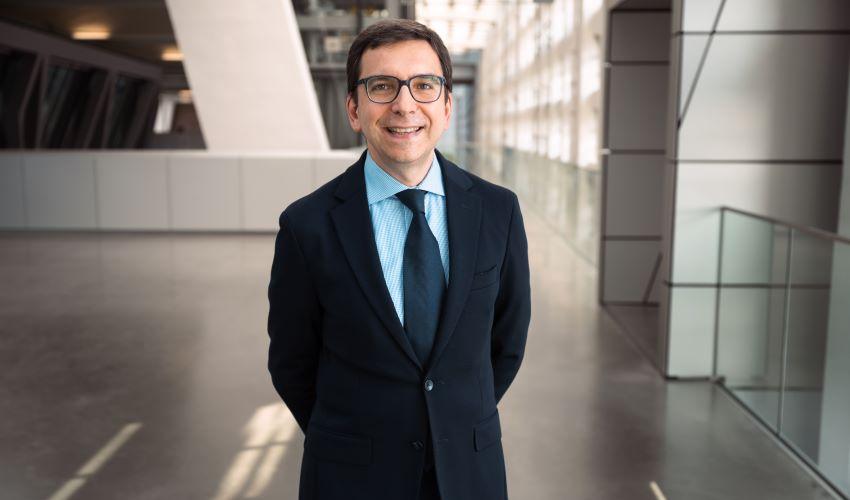
Roberto, Who Witnessed the Birth of the ECB
FIRST AT THE EUROPEAN MONETARY INSTITUTE, THE EMBRYO OF THE EUROPEAN CENTRAL BANK, TODAY DG CORPORATE SERVICES OF THE LATTER. THIS IS ALUMNUS ROBERTO SCHIAVI'S PROFESSIONAL CAREER. CURRENTLY BASED IN FRANKFURT, HE RECALLS HOW, DESPITE THE PROBLEMS IN RECENT YEARS, THE MONETARY UNION HAS NEVER REALLY BEEN AT RISKNot everyone can participate in the creation of an international bank or even a new monetary policy. In this sense, Roberto Schiavi is a privileged observer of European economic history, as he has participated in it since the early ‘90s. That was when he was hired a few days after graduation by the IMI Group’s investment bank in Luxembourg. "It was the time when securities indexed to currency exchange were very popular among international investors, the golden age of Eurobonds, securities issued by Italian companies abroad," says the current Director General Corporate Services at the ECB. "The interest in the new supranational institutions, however, led me to look into the European Monetary Institute that was being set up in those years in Frankfurt, and so I started at the Department of Financial Markets, which in fact was the embryo of the ECB in 1998." Schiavi’s tasks included being responsible for preparing the first operational framework for the implementation of monetary policy, which is still the reference – though it has since been expanded and updated – for the banking system of the Euro area in terms of operations with the Eurosystem.
In his current role at the ECB, the Bocconi Alumnus combines administrative services and property management expertise with that of the central bank's internal finance department, i.e. management control, analytical and financial accounting, procurement and budgetary policies. A delicate position above all because, from 2006 onwards, a state of almost perennial crisis remains within the EU. "The first few years were relatively quiet, and this allowed us to lay a solid foundation. We built the roof, in short, until it rained," comments the DG. "Despite all the problems we have gone through in recent years, however, I do not remember a moment when we were truly worried about the stability of the system and the monetary union. Of course, in 1997, when the Euro was postponed for a couple of years, we understood that we were risking everything, like in a large startup with only one goal, that of creating a currency and a central bank." This test of strength, as well as the 2007-2009 financial crisis triggered by the implosion of subprime mortgages in the US and the subsequent sovereign debt crisis in the Euro area, welded the EU not only economically and monetarily, but also politically. "The most recent example is the war in Ukraine, where the choice to expand the Union in 2003-2004 proved to be a very wise decision," concludes Schiavi. "In fact, at a time when everything was going well, it was decided to not close the borders but – on the contrary – to open our arms to other countries beyond the former iron curtain, bringing peace and stability. Europe is a treaty among countries that do not always think the same way, yet share common democratic principles, and I believe that this is the most important basis for building a peaceful future."
by Pietro Masotti
Translated by Jenna Walker
